Imagine you're driving down the highway, enjoying the scenery, but your phone's battery is about to die. Or picture a family road trip where everyone's tablets and game consoles are low on power. The solution? A USB C charger in your car, especially if it has multiple ports. This article is your guide to understanding the world of USB-C car chargers and multi-port options. We'll help you find the perfect charger for your needs, whether you're a tech-savvy driver, a busy professional, or a family always on the move. We'll explore the benefits of fast USB car chargers and show you how to install them safely and easily. So, let's get started! A USB C car charger is a small adapter that plugs into the cigarette lighter or accessory port found in most cars and provides one or more USB outputs. It converts the 12-volt output from the car's electrical system to the 5 volts needed for USB devices. This makes it convenient for charging phones while driving. Some models can also connect to music players and transmit an FM signal to your car radio, allowing you to listen to music or make hands-free calls. They are especially useful when using your smartphone as a GPS device, which consumes a lot of battery power. A USB car charger is a handy device that allows you to charge your electronic gadgets, like smartphones and tablets, while on the road. It works by converting the power from your car’s cigarette lighter socket into a USB-compatible voltage, making it a convenient way to keep your devices powered up during long car rides or road trips. Let's take a closer look at each component of a car USB type C charger: The working principle involves connecting the charger to the cigarette lighter socket, converting the voltage, and then supplying power to your devices through the USB ports. This simple yet effective tool ensures your devices stay charged while you're on the go. There are several types of car chargers available for charging phones. These chargers are designed to be used in a car’s cigarette lighter or USB port. Here are some common types of car chargers for charging phones: A Dual Port USB Car Charger allows you to charge two devices simultaneously, making it ideal for long journeys. It connects to the car’s cigarette lighter socket and converts the car’s power into USB power for connected devices. This is convenient for individuals or families who need to charge multiple devices during car trips. Dual port chargers have two ports you can use to charge your devices simultaneously. Simply plug the charger into your car's power socket, and both devices will charge. Modern dual port car chargers often include multiple ports for even more convenience, allowing you to charge multiple devices without needing separate chargers. Dual port car chargers offer fast charging for two devices at once, making them time-efficient. Their dual ports allow you to charge multiple devices simultaneously, saving you from carrying around multiple chargers or waiting for one device to finish charging before plugging in another. This is especially useful for busy people or those on long drives, saving time and hassle. Apphone dual port car charger is shockproof and durable, making it safe for kids to use. It’s built to handle the vibrations of your car, so you won’t have to worry about it getting jostled around. When selecting a dual port car charger, consider several key features to ensure you’re getting a reliable and efficient product. By considering these factors, you can select a reliable and efficient car charger that meets your needs and ensures the safety of your devices. Using a car USB charger is straightforward. Connect one end of the USB cable to your device (e.g., smartphone, tablet). Make sure the cable is securely plugged into your device’s charging port. Once the USB charger is connected to both your device and the car, check if your device starts charging. Some devices may display a charging icon or indicator on the screen. That’s all—your device should now be charging. If you’re using a wireless car charger, ensure your device is compatible with Qi wireless charging. Position your device correctly on the charging pad or mount, aligning it with any indicators. Monitor the charging progress, checking for indicators on your device’s screen or LED lights on the charger. Keep the charging area free from obstructions and ensure your device’s battery contacts are clean. Adjust the placement if needed to optimize charging efficiency. Additionally, monitor your device’s temperature to prevent overheating during charging. Using a USB in-car charger does not necessarily damage your car battery. However, it's essential to be aware of the type of battery in your car and the charger’s voltage and current. Make sure the charger is rated for the voltage of your car’s battery. Most car batteries are 12 volts, but some luxury vehicles have 24-volt batteries. Using a charger not rated for the correct voltage could damage your battery. Lead-acid batteries are commonly used in cars and can be damaged by overcharging. USB in-car chargers typically have a voltage of 5 volts and a current of 2.4 amps. When charging a lead-acid battery with a USB in-car charger, the battery will charge faster than a standard car charger. However, this also means a greater risk of overcharging the battery. Overcharging a lead-acid battery can damage the battery cells and shorten the battery’s overall lifespan. Lithium-ion batteries are less likely to be damaged by overcharging than lead-acid batteries. When charging a lithium-ion battery with a USB in-car charger, the voltage will be lower than with a standard car charger. This reduced voltage means less risk of overcharging the battery; however, it also means the battery will take longer to charge. To avoid damaging your car’s battery, it is recommended that you use a charger specifically designed for your car’s battery type and follow the manufacturer’s instructions for charging. It is also important to monitor the battery’s charge level to avoid overcharging. Imagine this, you’re going down the highway, enjoying the scenery, but your phone’s battery is about to die. Or imagine that you’re on a family road trip, and everyone’s tablets and game consoles are low-powered. The magic solution is a USB C charger in the car, and better if there is a multiport car charger. This article is your guide to the wonderful world of USB-c charger for car and multi port car chargers. We’ll help you choose the perfect charger for your needs, whether you’re a tech-savvy driver, a busy professional, or a family who is always on the go. We’ll explain the benefits of fast USB car chargers and show you how to install your car charger safely and easily. So, hop in, and let’s get started! Most USB in-car chargers have built-in safety features that protect your devices from overcharging, so you don’t have to worry about damaging your battery. However, there are a few points you should keep in mind when using a USB in-car charger: Make sure the charger is rated for the voltage of your car’s battery. The higher the port’s amperage, the faster it’ll charge devices. The built-in car USB ports on most older models don’t produce enough power, so multitasking with your phone while charging will result in a slower charging process. Of course, Having a USB port in your car allows you to charge your devices without a car charger adapter, and you can even plug in a USB flash drive for music if you like. But you can also plug your phone in to play music directly. If your vehicle has a USB port, using that is the best way to play audio to your car’s stereo. USB in-car chargers draw power from your car’s cigarette lighter socket. This means that they are not connected directly to your car’s battery and, as such, will not drain it as quickly. This can be especially important if you use power-hungry devices such as tablets or GPS units. Don’t buy the wrong car charger. Car chargers come with different standards that aren’t compatible with each other. The wrong USB-C car charger or cable can destroy your devices: Car chargers suffer from the same problems as regular chargers, which means a poorly designed charger can destroy your devices. However, the 12V cigarette lighter will always charge a phone faster as it comes with 12V compared to a conventional USB cord that offers 5V. A 5V USB cord will always deliver far less power than a 12V cigarette lighter for the same time. Most USB in-car chargers have built-in safety features that protect your devices from overcharging, so you don't have to worry about damaging your battery. However, there are a few points you should keep in mind when using a USB in-car charger: Make sure the charger is rated for the voltage of your car's battery.<\/p>"}},{"@type":"Question","name":"Why is my car USB charger so slow?","acceptedAnswer":{"@type":"Answer","text":" The higher the port's amperage, the faster it'll charge devices. The built-in car USB ports on most older models don't produce enough power, so multitasking with your phone while charging will result in a slower charging process.<\/p>"}},{"@type":"Question","name":"Can a USB car charger play music?","acceptedAnswer":{"@type":"Answer","text":" Of course, Having a USB port in your car allows you to charge your devices without a car charger adapter, and you can even plug in a USB flash drive for music if you like. But you can also plug your phone in to play music directly. If your vehicle has a USB port, using that is the best way to play audio to your car's stereo.<\/p>"}},{"@type":"Question","name":"Will the USB car charger drain the battery?","acceptedAnswer":{"@type":"Answer","text":" USB in-car chargers draw power from your car's cigarette lighter socket. This means that they are not connected directly to your car's battery and, as such, will not drain it as quickly. This can be especially important if you use power-hungry devices such as tablets or GPS units.<\/p>"}},{"@type":"Question","name":"Are all USB car chargers the same?","acceptedAnswer":{"@type":"Answer","text":" Don't buy the wrong car charger. Car chargers come with different standards that aren't compatible with each other. The wrong USB-C car charger or cable can destroy your devices: Car chargers suffer from the same problems as regular chargers, which means a poorly designed charger can destroy your devices.<\/p>"}},{"@type":"Question","name":"Is 12 volt fast charging?","acceptedAnswer":{"@type":"Answer","text":" However, the 12V cigarette lighter will always charge a phone faster as it comes with 12V compared to a conventional USB cord that offers 5V. A 5V USB cord will always deliver far less power than a 12V cigarette lighter for the same time.<\/p>"}}]}
Using a USB in-car charger can be a convenient way to charge your devices while on the go, but it’s essential to use it responsibly to avoid damaging your car’s battery. To ensure safe charging, always monitor the battery’s charge level and disconnect the charger when the battery is fully charged. Furthermore, if you need customized multi-port car chargers for wholesale purposes, consider partnering with APPHONE. APPHONE offers a wide range of multi-port car chargers with various connector types, ensuring compatibility with diverse devices. Our commitment to quality and safety ensures that your devices receive reliable and efficient charging. In addition to our standard product offerings, we also support customization for wholesale orders. Whether you require specific connector types, charging protocols, or wattage, our team is always ready to assist you in creating a tailored charging solution that meets your unique needs. By choosing APPHONE, Polyurethane Rubber Roller,Polyurethane Arc Rubber Roller,Electroplating Pressure Roller,Polyurethane Rubber Casting Roller Jiangyin Mingda Rubber Roller Co,Ltd , https://www.mingdaroller.com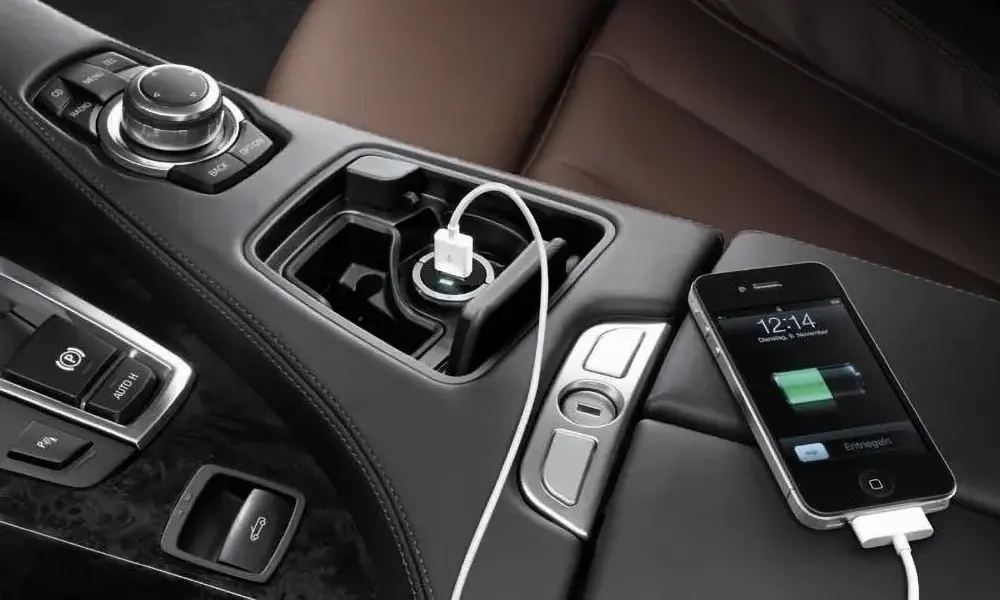
What is a USB Car Charger?
How Does a USB Car Charger Work?
What Types of Car Chargers Are There?
What is a Dual Port Car Charger?
How Dual Port Car Chargers Work?
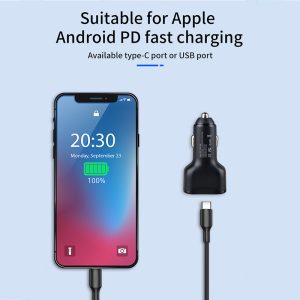
APPHONE PD 3 Ports USB C Car Charger
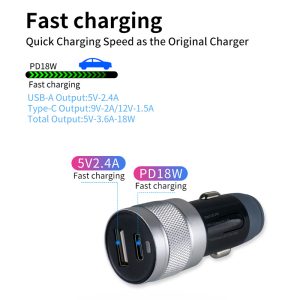
APPHONE Dual Port PD 18W QC 3.0 USB C Car Charger
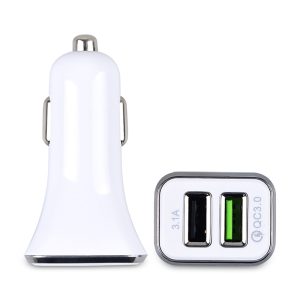
APPHONE QC 3.0 USB 3.1A dual port Car Charger
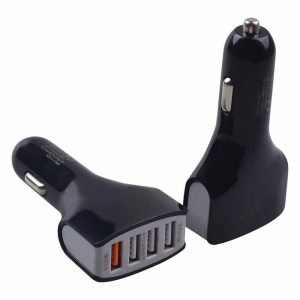
APPHONE Mini Dual PD QC3.0 USB C Car Charger
What Are The Advantages Of Dual-Port/Multi-Port Car Chargers?
How to Choose a Dual-Port/Multi-Port Car Charger?
How to Use a Car USB Charger?
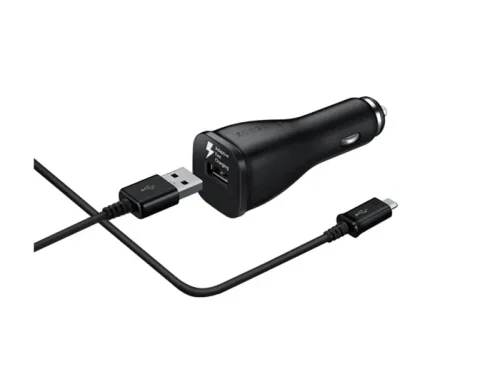
Does Using A USB In-Car Charger Damage Your Car's Battery?
Are USB car chargers safe?
Why is my car USB charger so slow?
Can a USB car charger play music?
Will the USB car charger drain the battery?
Are all USB car chargers the same?
Is 12 volt fast charging?
Customizable Charging Solutions with APPHONE